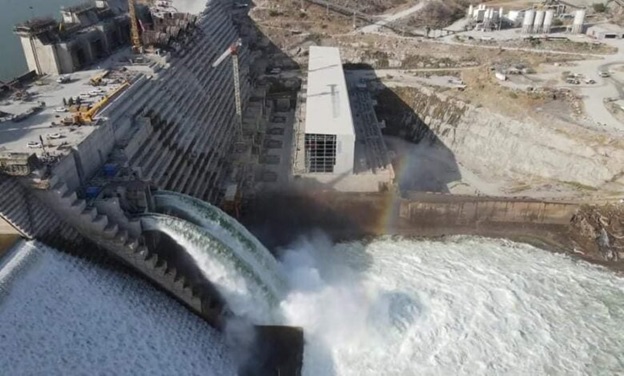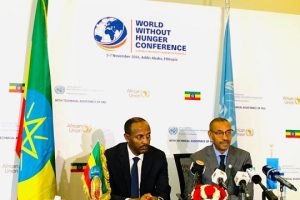
Since the inception of the flagship Grand Ethiopian Renaissance Dam (GERD) project, Ethiopia has been closely working with Sudan and Egypt to resolve disputes and create mutual trust. The tripartite negotiation saw some headway with the signing of the Declaration of Principles and Memorandum of Understanding in 2015 and 2017 respectively. But the three countries failed to reach a deal on outstanding issues due to the downstream countries’ ill deeds and foot-dragging.
In some cases, the two countries mainly Cairo has been trying to politicize and internationalize the technical matter taking the issue to UN Security Council and Arab League. Particularly, Egypt has been walking away from negotiations and trying to conspire with other internal and external adversaries to stop the unstoppable project.
GERD is a hydropower plant, not a political project. The politicization and internationalization of the dam will do more harm than use. Egypt has been trying to pull a third party to the negotiation and mystifying the international community with incendiary rhetoric and false propaganda. Some blocs and countries bought Egypt’s idea though their sought-after goal had not been attained due to Ethiopia’s unity and integrality.
Lately, the European Union either wittingly or unwittingly made a rather ridiculous claim about the Nile and GERD.
The claim was made during the ninth meeting of the Association Council of the European Union and Egypt took place in Luxembourg on 19 June 2022. The statement that came out of the meeting indicated that the two parties agreed to boost cooperation in various areas which includes securing Egypt’s interest in the Nile river waters by enforcing a binding agreement on the negotiation of the Grand Ethiopian Renaissance Dam (GERD).
The joint statement on GERD portrays the Nile as the only source of water resources and livelihood for Egypt, and also stresses the protection of Egypt’s water security.
The statement sparked anger on Ethiopia’s side since it mentions a “support” for Egypt to “protect Egypt’s water security” and considers the Nile as “a sole water resource” to the country contrary to the international water experts’ consensus that Egypt has abundant groundwater resources than Ethiopia.
EU’s position is one-sided and its claim of the preservation of Egypt’s “historic share” from Nile waters contravenes the Union’s impartial status regarding the construction of the GERD, so said the Ministry of Foreign Affairs (MoFA) lately.
MoFA’s former Spokesperson Ambassador Dina Mufti recently said that the EU’s backing of Egypt’s mythical historical share from Nile Waters is not something expected from observers, urging the Union to reconsider its stance.

“EU’s stance about “Egypt’s water security” is not acceptable. Ethiopia doesn’t have any plan to harm any of the Nile downstream riparian countries and has been strictly governed by the Tripartite Agreement. For a country that shows a genuine stance on the dam, such a partisan statement is unacceptable,” the spokesperson said in condemnation, added the Ambassador.
EU has been discharging its non-partisan role in the GERD Tripartite Negotiations; the spokesperson indicated the latest comment showcases the Union’s departure from its mandate and affinity with Egypt. The move also puts the EU’s integrity and impartiality in the negotiations in a doubt.
The joint statement clearly reflects the EU’s interest to use Egypt as a vehicle for its interest and activities in the Middle East, Africa, and Arab League. The union which currently is finding ways to resist the impact of the Ukraine crisis is also endeavoring to get benefit from Egypt’s food and commodities. In return, the bloc planned to assure support to Egypt including the country’s interest in the Nile.
Egypt has been opposing Ethiopia’s move to utilize developmental projects on the Nile since the launching of the construction of GERD. The country has been propagating that the dam threatens its water security. To meet its goal, Egypt has deployed various diplomats to echo its false narratives and tarnish the dam.
Dina who had stayed in Cairo for a year as Ethiopian Ambassador believed that issues related to the GERD or the Nile River are misperceived by some Egyptians and deliberately distorted. There are Egyptians who believe that the Nile originates from their country. Such misconceptions might have promoted undue arguments with Ethiopia on the Nile. In fact, the Egyptian government may use some western allies to claim Ethiopia’s natural resources. However, for Dina, not all western countries are putting pressure on Ethiopia. There is support from African countries as demonstrated through the recent hash tag “No More” movement. The collaboration among African countries with regard to resisting pressure from any corner be it West or East is very important because of the principles of mutual respect.
Noninterference with the internal affairs of other countries and respecting the sovereignties of other countries should be observed by anyone be it countries from the west or the east, according to Dina.
However, bilateral cooperation must not affect other countries’ national interests and sovereignty. The same is true for this unblessed commitment since it poses threat to Ethiopia’s sovereign national interest of utilizing its natural resource for economic benefit and regional integration. Instead, both parties need to support the rapid construction of GERD as it is a win-win project for Ethiopia and other downstream countries in regulating water flow, averting siltation, and gaining energy at a fair price.
Whatsoever, Ethiopia’s cooperative diplomatic move on GERD will not be affected by such irresponsible moves either from Egypt or the EU side? In his recent report to the parliament, Prime Minister Abiy Ahmed (PhD) expressed that Ethiopia still wants to work cooperatively and through negotiation with the Egyptian and Sudanese brothers.
“We do not have the desire of stopping the flow of the Abay water, rather generating energy. Everyone will be benefited if we work together and through negotiation,” he said.
If Ethiopia generates energy and Sudan produces food through irrigation, sharing the energy and the food will be more than enough. Abiy also urged the downstream countries to join the Cooperative Framework Agreement (CFA) on the utilization of Nile waters as it equally benefits all, according to the premier.
For years now, Ethiopia has been consistent in its position to resolve the contentious issues through diplomatic negotiation and a win-win approach. It has been Ethiopia that willingly embarked on the tripartite negotiation over the dam right after the launching of the project. And, the construction of the dam has been progressing well with the third filling expected to take place this rainy season. And, the choice for Sudan and Egypt is to get back to the round table and solve the outstanding issues and utilize the shared Nile River equally and reasonably.
BY YOHANES JEMANEH
The Ethiopian Herald 28 June 2022




